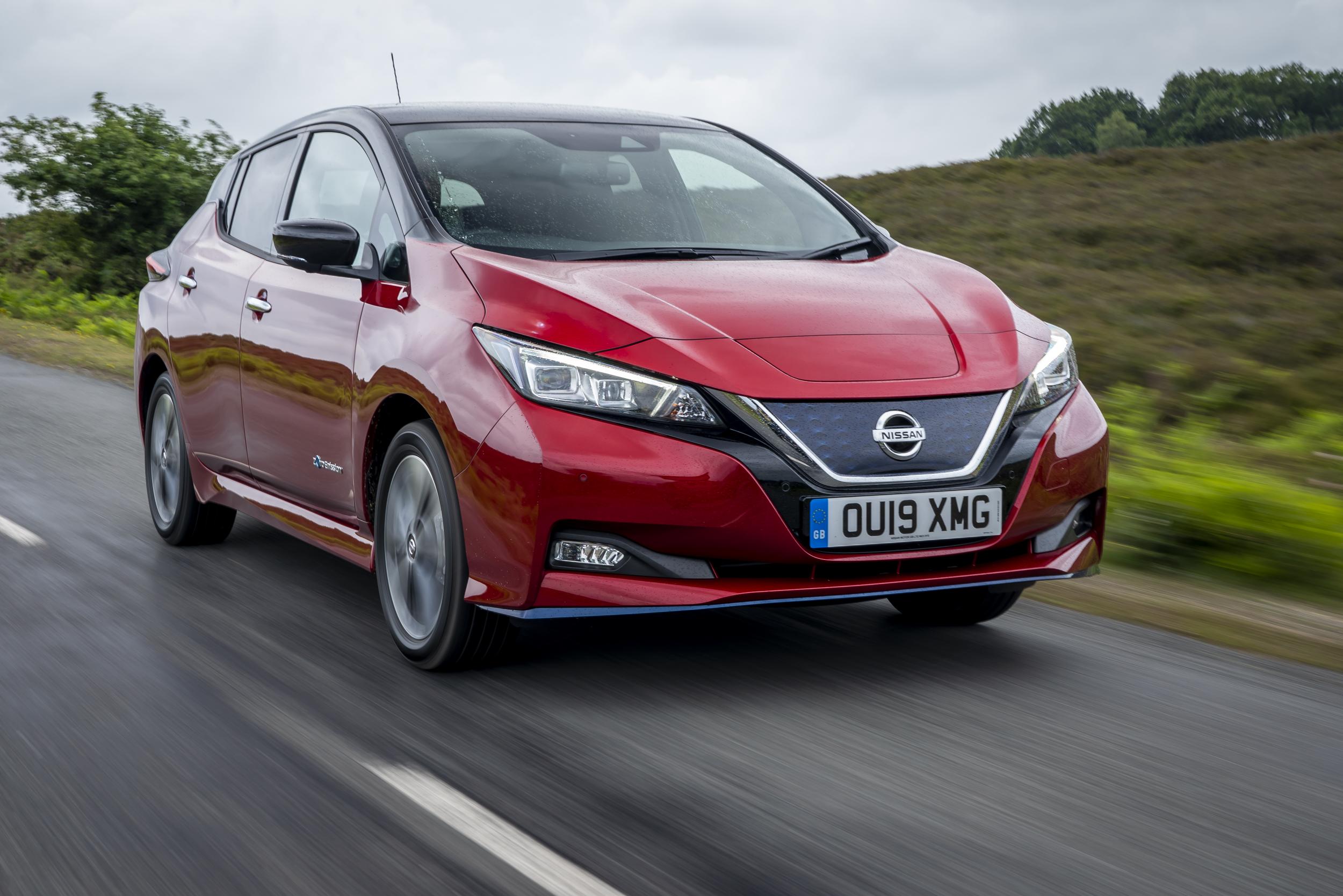Car Review: Nissan Leaf e+ – 240 miles on one charge
A smooth ride and a 60kWh battery – what’s not to like about Nissan’s latest electric, asks David Wilkins

The new Nissan Leaf e+ looks pretty much like any other Leaf. And despite a decent boost in power compared with previous models, it feels pretty much the same to drive as well – smooth, quiet and responsive, as all electric cars are.
The big difference is under the attractive if unassuming skin, in the form of a battery pack that is about fifty per cent bigger than any we have seen in a Leaf before. The first Leafs that appeared in 2011 had a 24kWh battery that offered a range of about eighty miles. An upgrade to 30kWh (about 100 miles) followed a few years later, and the current second generation version was launched with a 40kWh battery and a range of about 160 miles. Now the Leaf e+ has a 60kWh battery which should be good for 240 miles in decent conditions – three times as much range as that first Leaf could deliver just seven short years ago.
You can do a lot with 240 miles of range – London to Glasgow or Edinburgh with just one coffee stop for a rapid charge top-up for a start. Of course, 240 miles still falls short of the 300-plus miles a tank of petrol or diesel will give you but in the UK it should be enough for almost all drivers almost all of the time, an undreamt of luxury for owners of most earlier electrics.
But long-range electric cars aren’t just about matching the convenience of fossil-fuelled cars for long journeys in terms of the logistics of filling up. There’s something else going on too. Once you bust the old range limitations, electric cars are superb machines for long distance travel. Smooth, instant and effortless power delivery without gear-changing of either the automatic or the manual variety makes for a far less fatiguing driving experience over a long day at the wheel. Passengers arrive fresher too, thanks to very low levels of what motor industry people call NVH – noise, vibration and harshness – compared with petrols and diesels. Cars like the 240-mile Leaf e+ allow that advantage to be exploited to the full.
The spec
Nissan Leaf e+
Price: £35,895 (after £3,500 government grant)
Motor: Electric; 1-speed
Power output (hp): 215
Battery capacity: 60kWh
Top speed (mph): 97
0-60mph (seconds): 7.3
Fuel economy (mpg): n/a
Range: 239 miles (WLTP, "real world")
CO2 emissions (g/km): 0
And racking up the miles accentuates another advantage of electric cars – low operating costs per mile. Top up at home, and electricity will cost you 2-3p per mile, compared with about 10-20p per mile for petrol or diesel. These numbers can vary quite a bit depending on conditions and driving style, and charging away from home on the public charging infrastructure can be more expensive, but you get the idea. Add in zero road tax and lower servicing costs and, once you’ve paid for an electric car upfront, you won’t be putting your hand in your purse or your wallet very often after that.
That said, the upfront cost of going electric can still be quite high, especially if you want decent range. At least for the time being, the e+ with its new bigger battery is a top-of-the-range affair costing about £36,000. That’s around £8,000 more than the starting price for the more basic entry-level version, which sticks with the smaller 40kWh battery and a still pretty usable 160 miles or so of range.
For the time being, the e+ is expected to account for only a minority of Leaf sales but based on past experience, I’d expect the bigger battery pack to be offered more widely in future and perhaps eventually become standard across the range – not least because the Leaf is about to get a lot more competition in the form of a revamped Renault Zoe and new electric versions of the Peugeot 208 and Vauxhall Corsa. These cheaper cars will be offering 200-plus miles of range as well, although the slightly bigger Nissan will probably retain a bit of an edge in terms of practicality and interior space.
The message? Long-range electric cars have arrived and they're here to stay.
Subscribe to Independent Premium to bookmark this article
Want to bookmark your favourite articles and stories to read or reference later? Start your Independent Premium subscription today.

Join our commenting forum
Join thought-provoking conversations, follow other Independent readers and see their replies